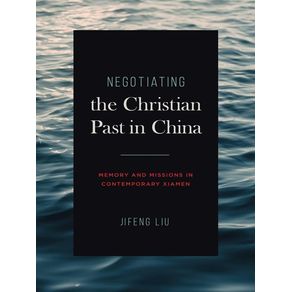At the turn of the twenty-first century, Xiamens pursuit of World Heritage Site designation from UNESCO stimulated considerable interest in the citys Christian past. History enthusiasts, both Christian and non-Christian, devoted themselves to reinterpreting the legacy of missionaries and challenged official narratives of Christianitys troubled associations with Western imperialism. In this book, Jifeng Liu documents the tension that has inevitably emerged between the established official history and these popular efforts.This volume elucidates the ways in which Christianity has become an integral part of Xiamen, a Chinese city profoundly influenced by Western missionaries. Drawing on extensive interviews, locally produced histories, and observations of historical celebrations, Liu provides an intimate portrait of the people who navigate ideological issues to reconstruct a Christian past, reproduce religious histories, and redefine local power structures in the shadow of the state. Liu makes a compelling argument that a Christian past is being constructed that combines official frameworks, unofficial practices, and nostalgia into social memory, a realm of dynamic negotiation that is neither dominated by the authoritarian state nor characterized by popular resistance. In this way, Negotiating the Christian Past in China illustrates the complexities of memory and missions in shaping the citys cultural landscape, church-state dynamics, and global aspirations.This groundbreaking study assumes a perspective of globalization and localization, in both the past and the present, to better understand Chinese Christianity in a local, national, and global context. It will be welcomed by scholars of religious studies and world Christianity, and by those interested in the church-state relationship in China.

